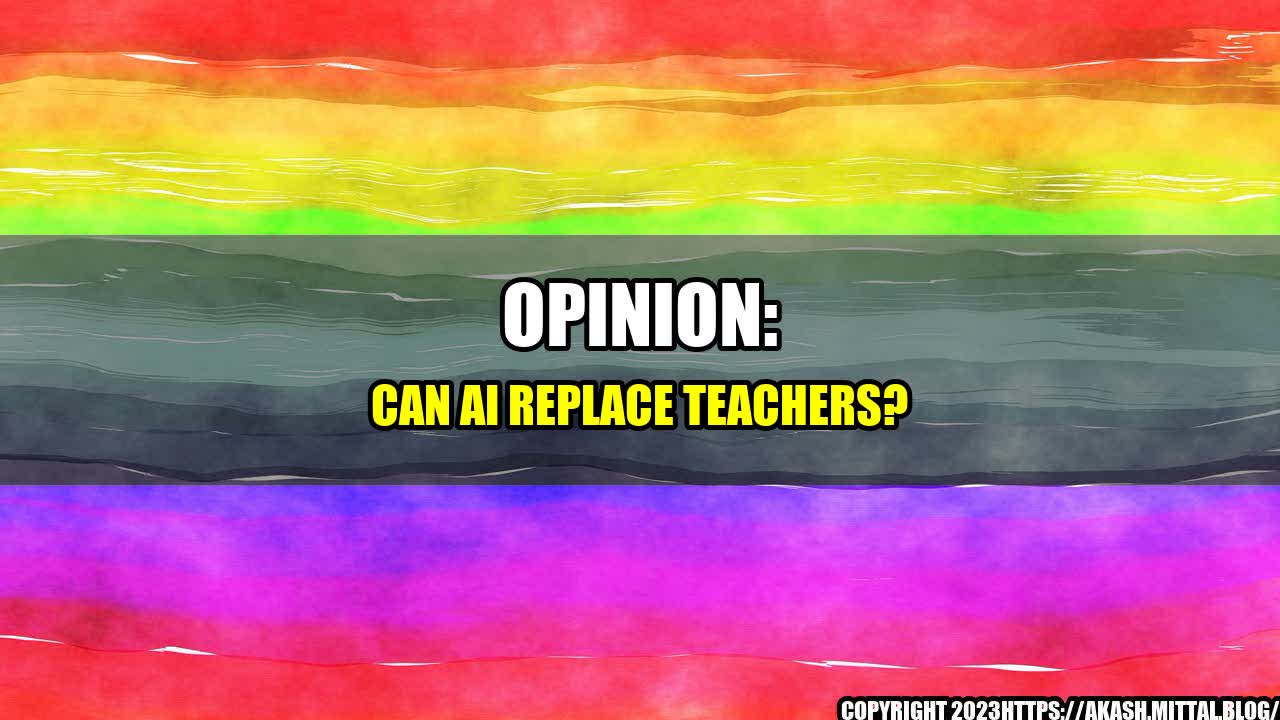The Rise of AI in Education
As a teacher for over a decade, I have seen firsthand how technology has transformed the way we educate our children. From interactive whiteboards to tablets, technology has provided us with new tools to engage students and enhance their learning experiences. But what about Artificial Intelligence (AI)? Can it truly help educate our kids?
Recently, I came across a story about a young girl named Emma who struggled with reading. Her school implemented an AI program that provided her with personalized lessons and instant feedback. Within a few months, Emma's reading level improved significantly. This got me thinking: if AI can help one child, imagine the possibilities for an entire classroom.
The Benefits of AI in Education
AI has the potential to revolutionize education in many ways. Here are a few quantifiable examples:
- Personalized Learning: With AI, students can receive personalized lessons tailored to their individual needs and learning styles.
- Instant Feedback: AI can provide immediate feedback and corrections, allowing students to correct mistakes as they go.
- Efficiency: AI can grade assignments and assessments quickly and accurately, freeing up teachers' time for other tasks.
While these benefits are significant, some argue that AI could eventually replace teachers altogether.
The Debate Over AI vs. Teachers
As an educator, the thought of AI replacing teachers is alarming. Teaching is a complex profession that involves much more than simply imparting knowledge. Teachers serve as mentors, role models, and advocates for their students. They also offer emotional support and guidance that cannot be replicated by a computer program.
However, proponents of AI argue that technology can enhance the role of teachers, not replace them. By automating certain tasks, such as grading or creating lesson plans, teachers can focus on their core purpose: nurturing and developing their students.
It's also important to note that AI is not infallible. A computer program may be able to analyze data and provide feedback, but it cannot replicate human intuition, empathy, and creativity. These are qualities that are essential for effective teaching.
The Future of AI in Education
So, what does the future hold for AI in education? Here are three points to consider:
- Collaboration: AI and teachers must work together to provide the best possible education for students.
- Effective Implementation: AI should be implemented strategically and responsibly, with a focus on enhancing the role of teachers rather than replacing them.
- Continued Assessment: As AI becomes more commonplace in education, we must continue to assess its impact on students and teachers to ensure that it is being used effectively and ethically.
As a teacher, I believe that technology can be a powerful tool for education. But it must be used responsibly and in a way that supports, rather than replaces, the crucial role that teachers play in our children's lives.

Curated by Team Akash.Mittal.Blog
Share on Twitter Share on LinkedIn